“When the seasons collide” is the theme for this month’s blog! May is indeed the month when southern gardeners experience spring and summer on a day-to-day basis. The weather is unpredictable, and the garden is growing faster than ever. It can be a lot to keep up with. So, what am I up to in this month of increasing day length? EVERYTHING!
Seriously, May is the month where my work/life balance feels dysfunctional. Between webinars, garden tours, seeding, harvesting, and transiting from spring to summer I never feel caught up at this time of year. Despite working outside into the dark my to-do list remains long.
But, as I have mentioned in the past, it is important to enjoy your garden, and this year I have been making sure to not let the never-ending to-do list get in the way of appreciating all the garden offers. This a special time to reflect on how much has changed over the past year, and how gardening is more popular than ever! Truly the silver lining of the pandemic is the resurgence of a new generation of gardeners!
In fact, we were able to host the annual spring open garden and welcomed hundreds of visitors from near and far. It was such a delight to see the foodscape full of enthusiastic gardeners. Thank you to everyone who attended!
Now that the spring garden is in full bloom, what am I doing to prepare for the summer season? I will warn you, my list is long, but full of fun tasks that I love to do!
General Management
- Harvest spring crops to make room for summer veggies.
- Weed everywhere- this task never goes away!
- Top dress raised beds and garden areas with Soil³ before planting!
- Mulch any open areas to help retain moisture and reduce summer weeds from getting established.
- Prune overgrown shrubs and trees with low limbs that are creating too much shade.
- Water, as needed. Earlier this month we were very dry, and I had to get the hoses stretched and sprinklers running. Having this set up will make it easier to keep up as the temperatures rise and the plants need more water.
Container Gardens
Container gardening is how I get a head start on the warm season, as my spring plantings are still growing strong so I cannot get much planted in the ground yet. My approach to containers is simple: plant in straight Soil³, keep them watered, and plan to pot them up or transplant them into the ground in mid-July. As you can see in this video, planting foodscape containers is a beautiful way to make harvesting simple, while strategically deterring animals by selecting stinky plants, such as Plectranthus aka Cuban oregano.
I also recommend growing grains in containers too. Specifically, rice in pots with no drainage holes. This is a fun, EASY way to cultivate a beautiful heat loving plant that you have probably never encountered. Grow rice 🌾. It’s easy!
Summer Gardening Tips
Sow summer seeds. Most of you are probably ahead of me on this task, but there is still time in May and June to sow your favorite summer crops. This is especially true for varieties such as cucumbers, squash, and zucchini which benefit from succession planting.
What is succession planting? It is an easy way to extend your harvests and make up for crop loss that occurs from insect or disease. Squash and zucchini are excellent candidate for succession sowing to help compensate from losses caused by squash borers.
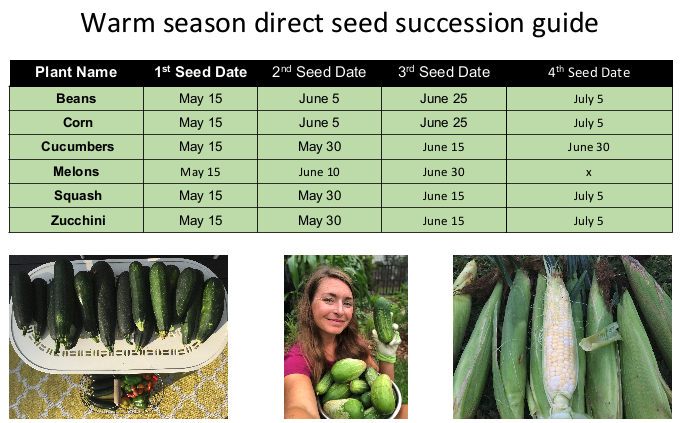
Succession planting extends your season and provide smaller harvests over a longer period of time.
Not everything needs to be succession planted. For example, fruiting crops that produce harvests for a long period time, such as tomatoes, peppers and eggplant do not need to be re-planted. Basil is another example of a summer plant that will thrive through the entire season.
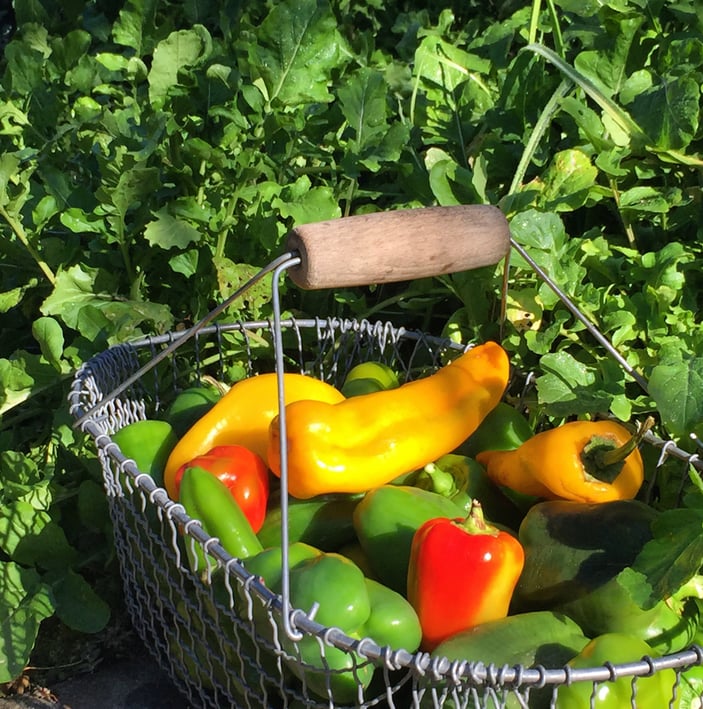
Tomatoes, peppers, and eggplant do not need to be succession planted.
Watering & Maintenance
- No “one size fits all” rule to watering: if plants are wilting, they need water!
- Drip systems are great for permanent plantings but can be difficult when growing seasonal crops.
- Overhead irrigation or soaker hoses may be the easiest way to keep your season veggies and flowers watered.
For more tips on watering, including m
y favorite watering tools, read my Best Practices for Watering your Garden.
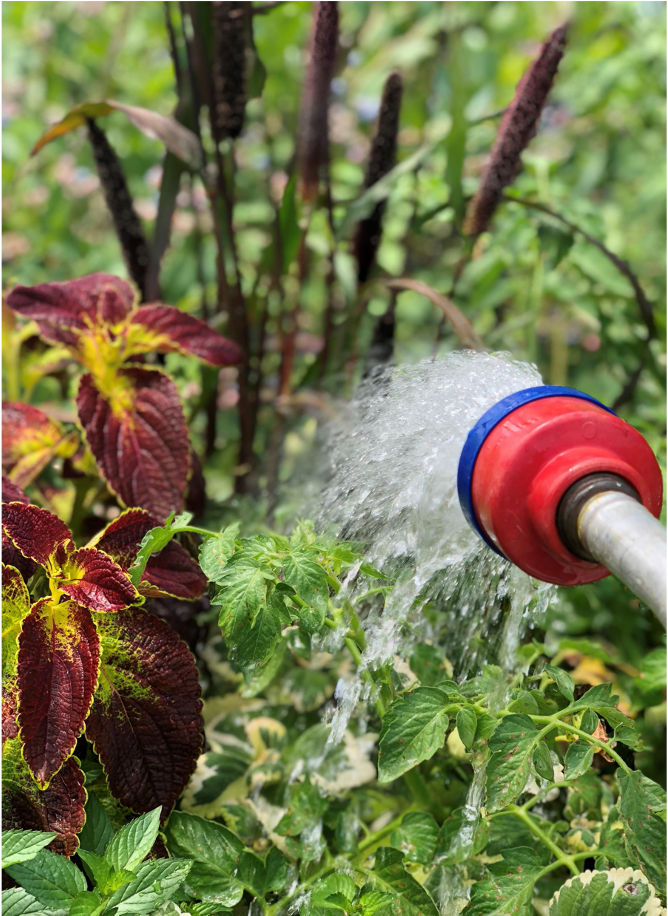
Keep your veggies and flowers watered.
Fertilizer
- Organic is best for long-term success: Plant-Tone, cotton seed meal, and fish emulsion are my go-to’s.
- I apply Plant-Tone in March and October on everything and add a handful to everything that I plant in May and June.
- Fish emulsion or kelp meal is my liquid fertilizer of choice and I apply it once a month from April - September.
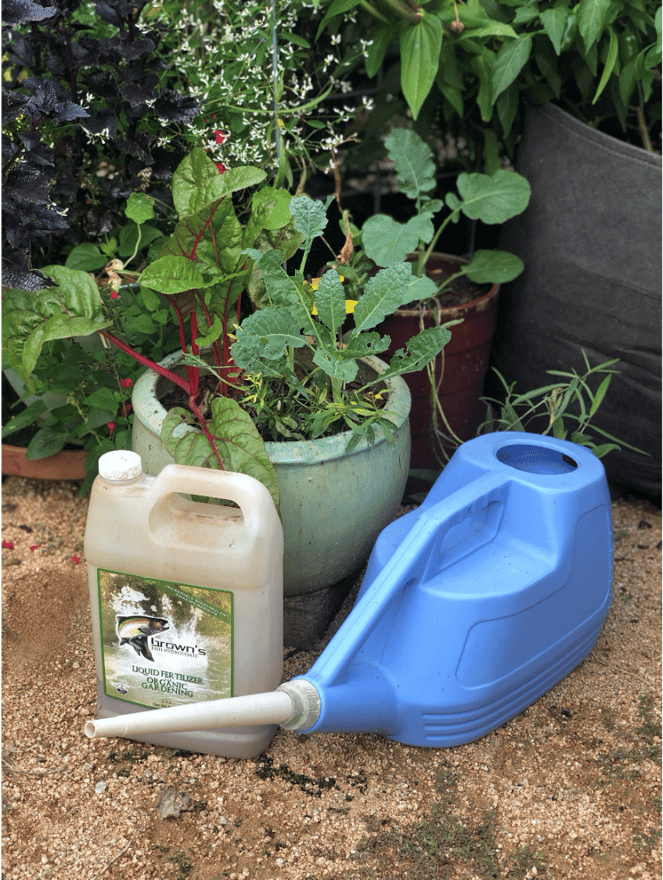
- Using Soil³ humus compost is the best way to grow healthy plants without needed extra fertilizer!
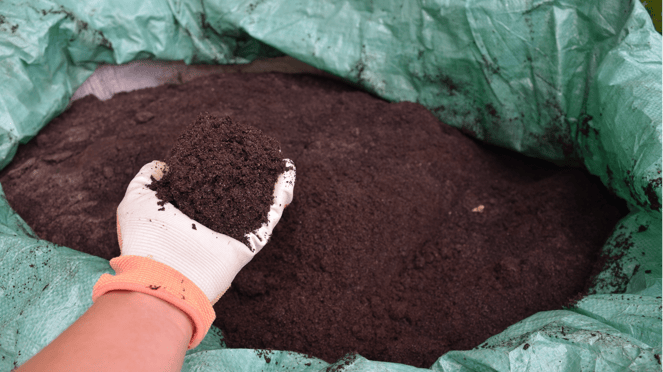
Insect & Disease Control
- Insecticidal soap is easy to make and effective.
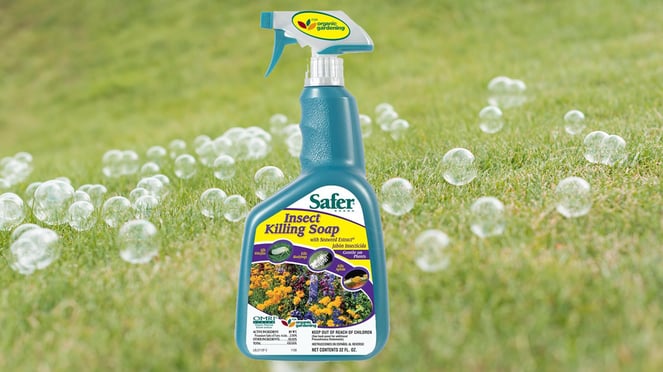
- Copper sulfate works well for fungal pathogens.
- Bacillus thuringeiensis (BT) will stop caterpillar damage organically. Dipel Dust BT is available in most garden centers.
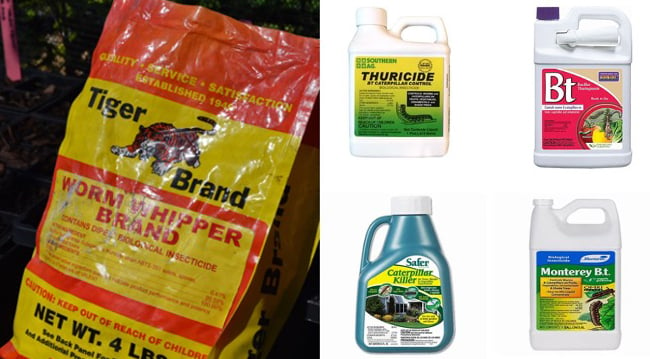
Weed Control
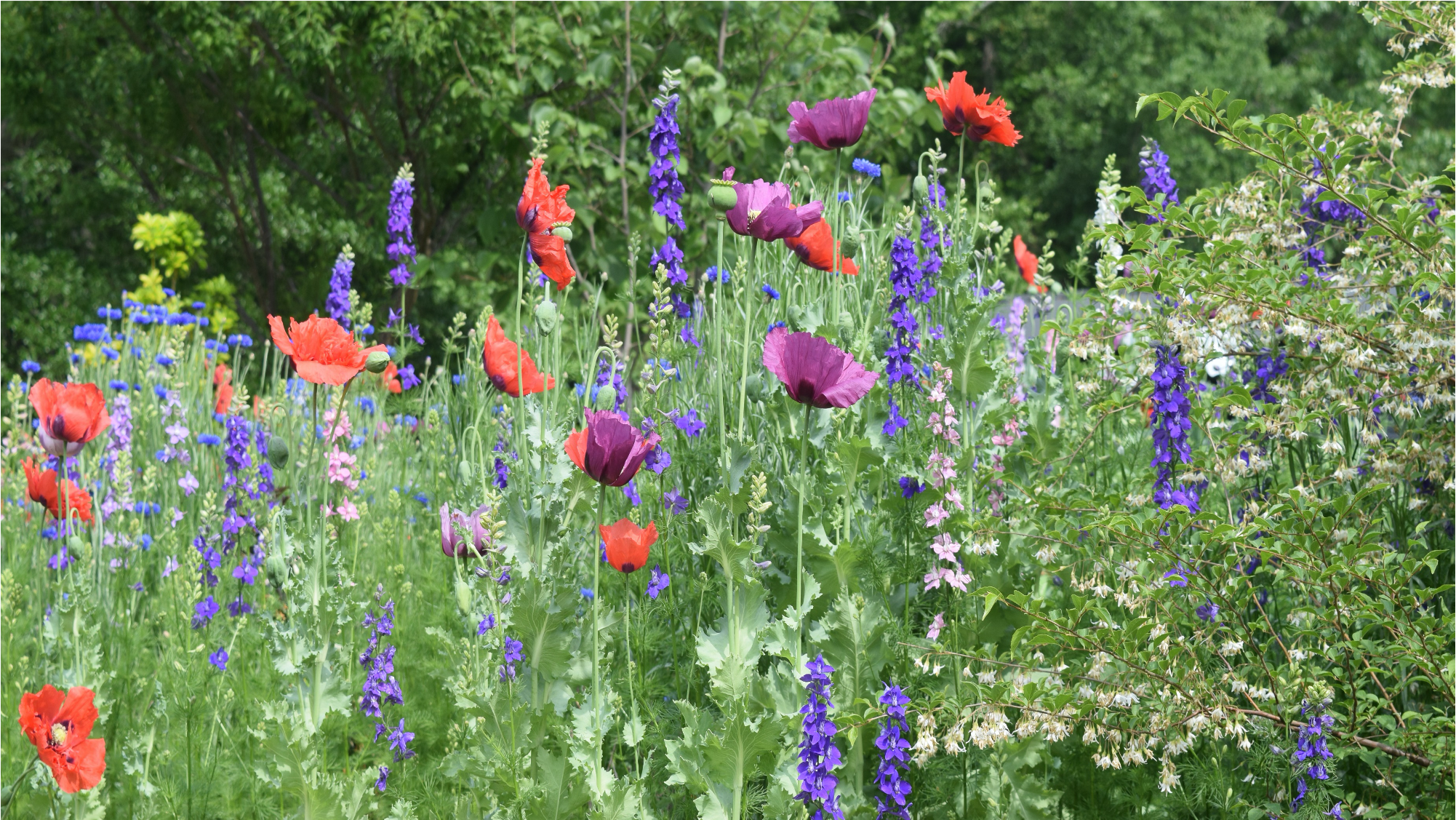
Ground cover helps reduce weeds.
- Hand weeding is always most effective for instant results.
- Focus on ground plane coverage to reduce weeds - that means plant densely so there are no open spaces.
- Grow cover crops seasonally to improve soil fertility.
Dealing with Animals
The changing of seasons has definitely arrived and so have the browsing mammals! Here are some quick tips on what I will be doing this month to protect my plants. To learn more about keeping critters at bay, check out my article on Expert Gardener Tips for Keeping Deer Away.
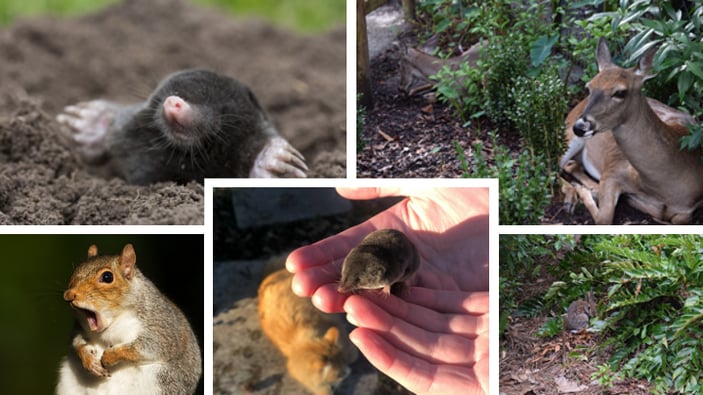
- Fencing and cages are a good first line of defense.
- Block deer runs with spiky plants such as Yucca.
- My favorite repellent is I Must Garden. It needs to be applied frequently as the plants are growing.
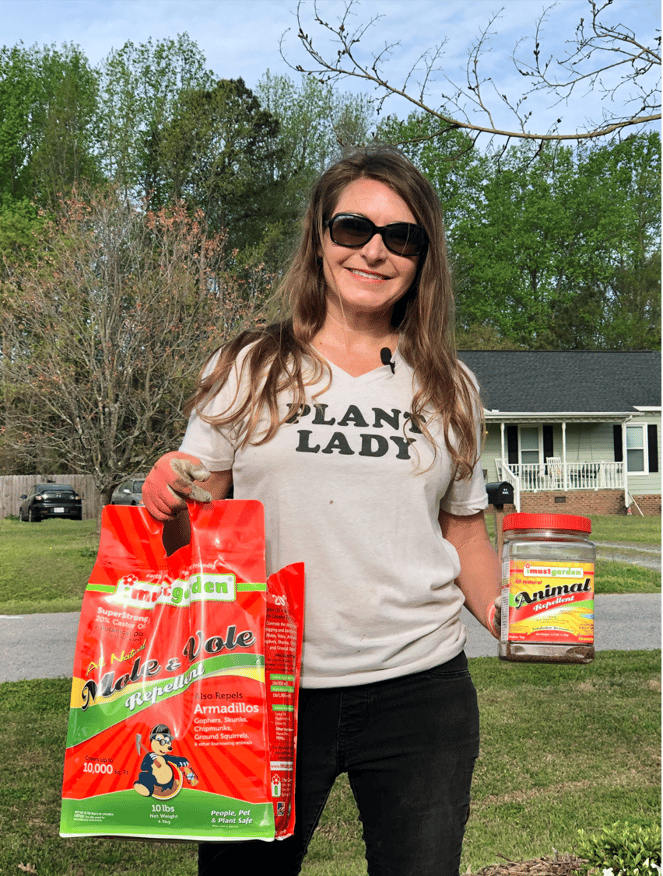
- Motion censored irrigation is amazing!
- Vole King is an INCREDIBLE PRODUCT to prevent voles from eating the roots of your plants. It's made of wire mesh and comes in many sizes.
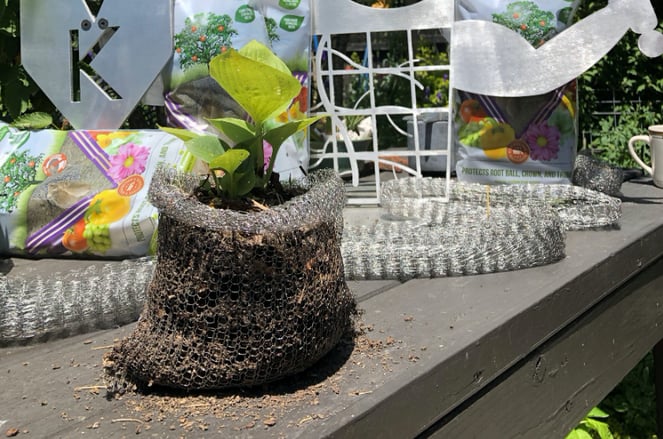
- Plant bed edges with stinky foliage plants to help deter animals. In the summer, globe basil works best!
I hope these tips will help make your summer growing experience better than ever! Until next month, happy gardening y’all! Be sure to wear your sunscreen and stay hydrated!
Happy gardening,
Brie
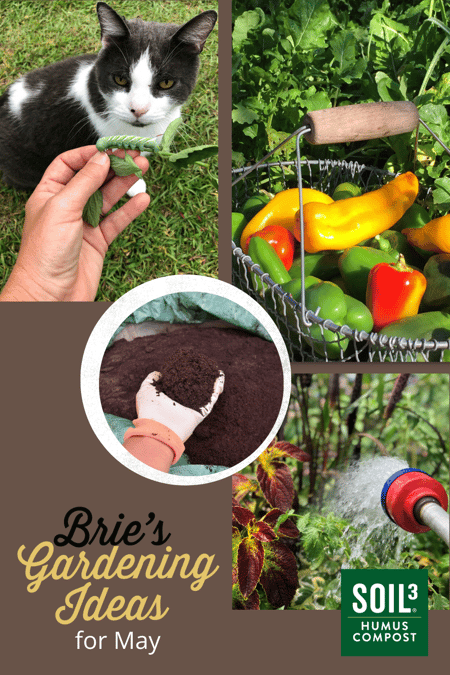
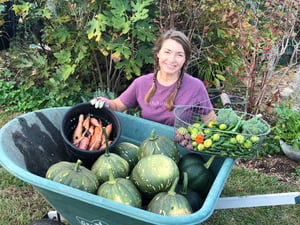
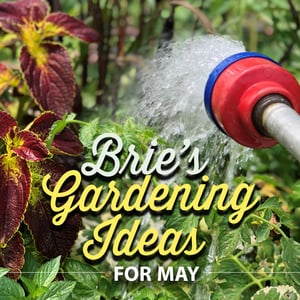

Did this help you out? Have any questions for clarity? Leave a comment below!